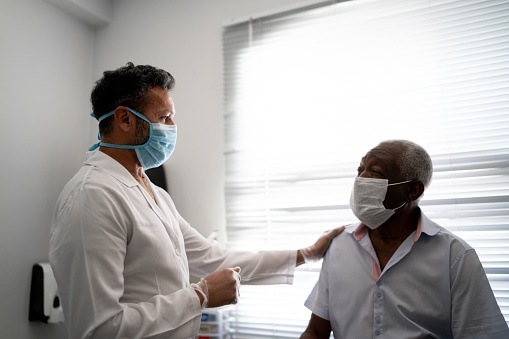
Chimeric antigen receptor (CAR) T-cell therapy holds much promise in treating B-cell malignancies and multiple myeloma. However, CAR T-cell therapy has had limited use in solid tumors.
There are multiple obstacles, “including the lack of robust in vivo CAR T-cell expansion and persistence, the immunosuppressive tumor microenvironment, and tumor escape due to heterogeneous tumor cell composition with a potential loss of the targeted tumor antigen,” said Xingchen Liu of Zhengzhou University in China, leading a presentation at the all-virtual 62nd ASH Annual Meeting & Exposition.
To address those issues, the researchers engineered CAR T-cells using a novel CoupledCARTM technology. They generated cells with lentiviral vectors encoding an anti-thyroid stimulating hormone receptor (TSHR) CAR molecule. TSHR has been shown to be highly expressed in thyroid cancer cells, and in vitro experiments showed that TSHR CAR T-cells recognized and killed TSHR-positive tumor cells. In addition, animal experiments have shown that TSHR CAR T cells inhibited proliferation of TSHR-positive tumor cells.
Therefore, the researchers sought to evaluate the clinical safety and efficacy of anti-TSHR CoupledCAR T-cells on refractory or relapsed thyroid cancer. With approval from their Institutional Review Board, the team treated two patients with relapsed/refractory thyroid cancer after thyroidectomy. They administered anti-TSHR CoupledCAR T-cells and tracked outcomes.
Patient 1: The first patient was a 64-year-old man with papillary thyroid cancer diagnosed in May 2017. The patient had bilateral total thyroidectomy, right cervical lymph node functional dissection, and iodine 131 isotope therapy. Subsequently, the patient experienced enlarged bilateral multiple cervical lymph nodes, especially on the right side, so he underwent lymphadenectomy on that side.
The patient received anti-TSHR CoupledCAR T-cells. One month after infusion, lymph node metastasis was undetectable and tumor size decreased significantly. Three months after infusion, tumor tissue was even smaller.
Patient 2: The second patient was a 60-year-old woman with thyroid cancer who had a double thyroid lobectomy and received iodine 131 isotope therapy. She later progressed to iodine-resistant thyroid cancer and received five cycles of chemotherapy, then experimental tyrosine kinase inhibitor anlotinib. However, she developed multiple metastases in the lungs and enlarged lymph nodes.
The patient received anti-TSHR CoupledCAR T-cells, which led to significantly decreased tumor volume in the lower lobe of the right lung.
“We observed the rapid expansion of CAR T-cells and enhanced the killing of tumor cells. One patient’s best response was complete remission, and the other was near complete remission,” the researchers said. The team is recruiting additional patients and testing the technology in other solid tumors as well.







 © 2025 Mashup Media, LLC, a Formedics Property. All Rights Reserved.
© 2025 Mashup Media, LLC, a Formedics Property. All Rights Reserved.